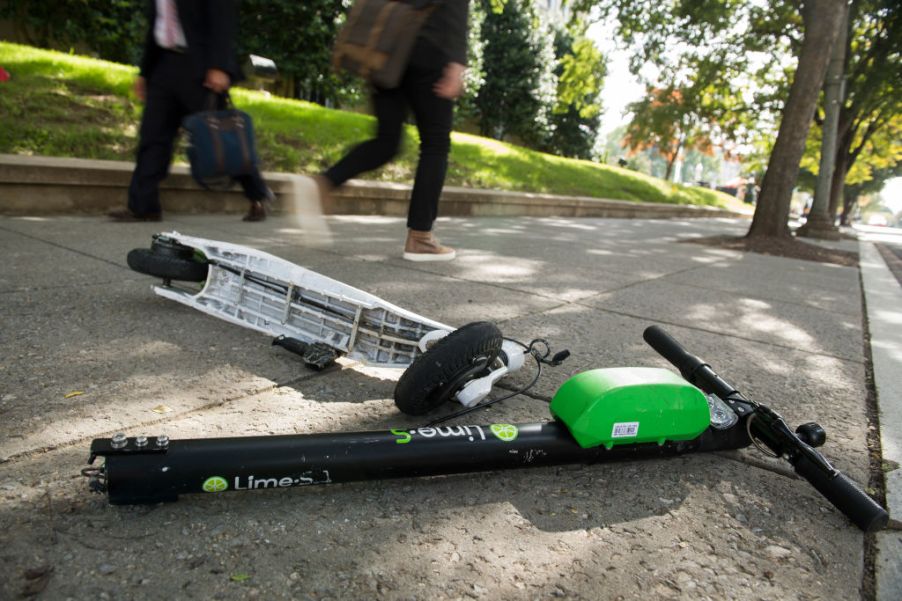
Why Most Americans Are Fed up With E-Scooters in Their Cities
When the idea first came about, the thought of getting around your city on an e-scooter might’ve sounded great. Better for the environment, inexpensive, and quick. It seemed like the future of transportation. But the sudden e-scooter boom has caused considerable safety, congestion, traffic, and planning concerns in urban areas.
Here’s why Americans are fed up with the same e-scooters they fell in love with not too long ago.
E-scooters: where the trend got its start
Citizens and officials alike have been trying to solve some of our cities’ biggest problems, like traffic, congestion, transportation, and our effect on the environment. Getting around by car typically isn’t the quickest mode of transportation in urban areas and not everyone enjoys the bicycle life. Trains and buses tend to be crowded and give off more carbon emissions than other forms of transportation. But what if urban commuters had access to an electric scooter?
The idea of providing cities with access to e-scooters quickly spawned into a worldwide industry that has put electric scooters on almost every city-street corner across the globe. With e-scooters providing a quick, environmentally-friendly way to work, riders and city officials alike started exploring the idea around 2017. Today, e-scooter rental docks are showing up in cities all over the world.
The rise and boom of the industry
According to USA Today, there were more than 38 million trips made on shared, city scooters in the year 2018. This number is twice the number of trips reported in 2017 when station-based scooters and rental docks started showing up on city streets.
When places like Santa Monica and San Francisco started the e-scooter trend in 2017, it was only supposed to be on a trial basis. Soon after, startup companies started taking advantage of the possible market.
According to Bloomberg, startup rental companies like Bird, Lime, Skip, and Spin quickly hopped on board. Docks began showing up in cities across the country that allow riders to easily rent, pick up, and use an electric scooter whenever they need to. But this sudden, booming industry is causing some concern from safety officials, policymakers, and commuters alike.
Why the people are turning against e-scooters
Getting around on an e-scooter seems like an ideal solution to a variety of urban problems. E-scooters eliminate traffic congestion, long commuting times, expensive transportation costs, and high carbon emissions. But then why are so many cities ready to get rid of electric scooters altogether?
While e-scooters seem like a great idea, cities and their officials have not had time to catch up with policy and regulations. Cities are scrambling to accommodate the need for e-scooters, but are finding it hard to regulate their use, safety, and clutter. Many cities like Chicago and Portland have launched pilot programs to test out the city-wide use of e-scooters, while other places like Manhattan have banned them altogether.
Some cities are simply trying to control the number of scooters littering the street, like San Francisco, which only allows a certain number of e-scooters to be used on the streets.
The influx of e-scooters on city streets is causing frustration from officials and citizens. According to Vox, there has been a significant increase in scooter-related injuries since the boom of e-scooters in cities and it’s easy to see why.
Without any safety equipment but able to travel up to 15 mph, scooters could be a disaster waiting to happen. Many people do not wear helmets when riding an e-scooter and failure to follow traffic rules has become common. In fact, Consumer Reports found an estimated 1,500 injuries reported from e-scooters just within the year.
But the safety of an e-scooter isn’t’ the only concern. There are simply too many of them. Citizens are finding that e-scooters are now littering the streets, causing as much congestion as vehicle traffic itself. And people are visibly expressing their frustrations with e-scooters in many cities.
How people are fighting back
According to Fast Company, the Portland Sheriff’s Office has been pulling e-scooters out of the river regularly; up to 50 at a time. Citizens from Venice Beach, California even buried scooters in the sand.
Retaliation against the scooters has boomed just as quickly as the industry began. There have also been reports of e-scooters being set on fire, thrown off balconies, crammed into porter-potties, and more. What began as a solution to urban commuting has seemingly created more problems.


